Yorkshire women share their pain over 'catastrophic' impact of endometriosis
There is almost a hidden epidemic, mother Michelle Middleton warns, in a condition that has until now been silently endured by countless women.
There is no cure for endometriosis, and no known cause. But with an estimated one in 10 women impacted, she adds, it is a condition that cannot be ignored.
Advertisement
Hide AdAdvertisement
Hide Ad"It's had a catastrophic affect on my life," says the 41-year-old, from Silsden, who has just undergone a full hysterectomy in the hope that it can ease her pain.
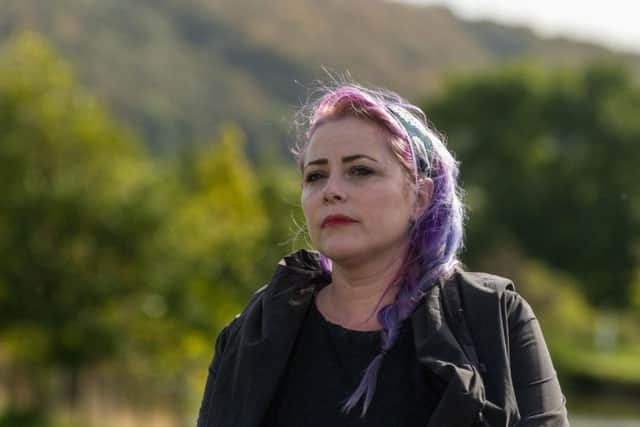

"There's so much potential that's been taken away from me. At every step with endometriosis, you're at a disadvantage. You have to be made of steel."
Inquiry to be launched
Endometriosis is a painful condition, as common among women as diabetes, which sees cells like those in the lining of the womb found elsewhere in the body.
It can impact on those of childbearing age, and can result in painful or heavy periods, chronic pain, fatigue and infertility.
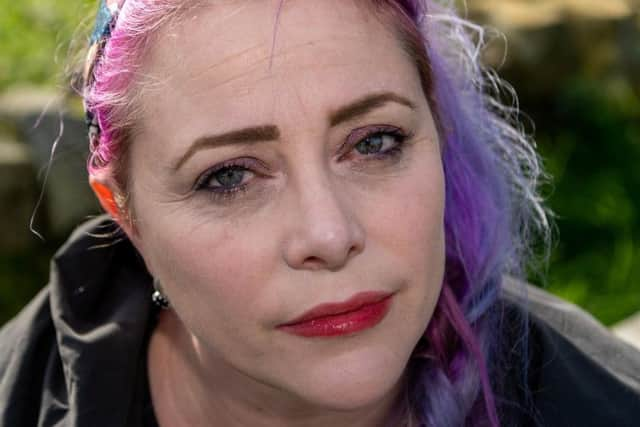

Advertisement
Hide AdAdvertisement
Hide AdMPs are to launch an inquiry into women's experiences of the condition, after more than 13,500 women shared their experience as part of BBC research published this week.
Half said they had had suicidal thoughts, and many said they rely on highly addictive painkillers.
Inconsistent care
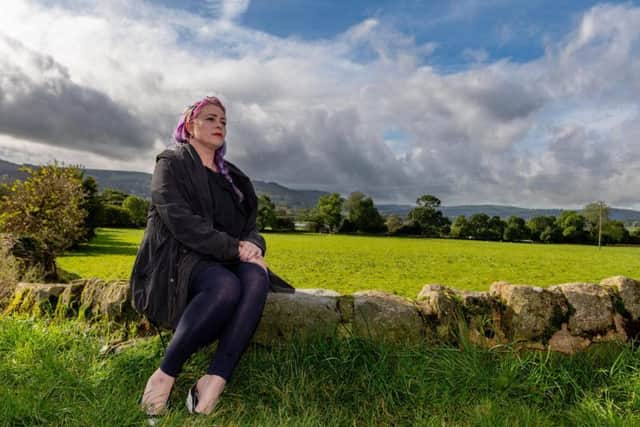

For Miss Middleton, a single mother-of-two, is has impacted upon every aspect of her life, she says. Relationship, parenting, her mental health.
Having completed a masters degree, she had hoped to become a teacher. She now runs her own cleaning business, as it means she can work from home.
Advertisement
Hide AdAdvertisement
Hide Ad"I can't sack myself," she says. "I was planning to have a career. What I have is an unknown future."
Miss Middleton's symptoms, though present as a teenager, worsened dramatically after the birth of her second child at the age of 25 and she has undergone eight surgeries.
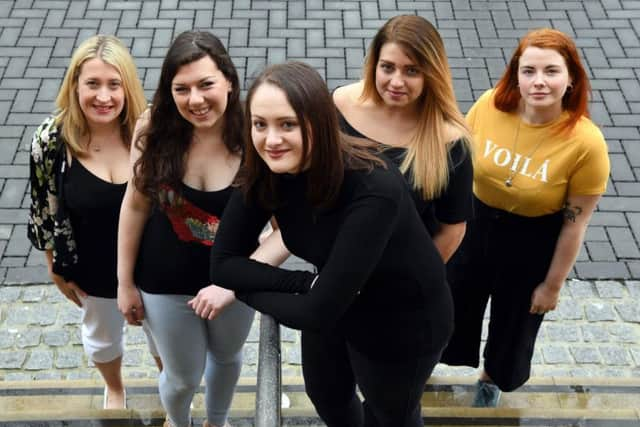

She considers herself fortunate, to have been diagnosed within six weeks. But she had already lost a child, late on in pregnancy, and her other two were born prematurely.
Rising awareness
At that time, 13 years ago, there was very little information available, and Miss Middleton set up a support group for Leeds and Bradford so that women could help each other.
She was amazed, she says, when so many people arrived.
Advertisement
Hide AdAdvertisement
Hide Ad"I've watched as awareness has grown," she says. "At every step of the way, we've had to fight.
"We have inconsistent care, not enough information. But we do have an amazing community of women.
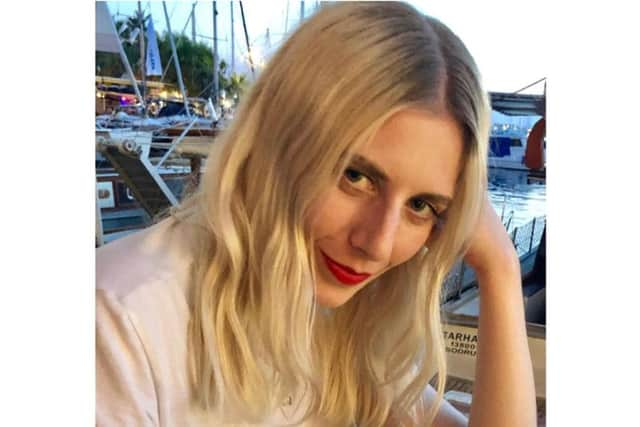

"Two years ago I was told there was nothing more they could do to help me. It got to the point where I was thinking of taking my life.
"Having a chronic condition is hard. It takes everything away from you. Hysterectomy is not a cure. But it could be a means to a better quality of life for me.
"It really is a hidden epidemic. The suffering is cruel."
Battle over diagnosis
Advertisement
Hide AdAdvertisement
Hide AdGrace O'Neill, from Bramley in Leeds, was diagnosed just a few weeks ago. It's been five years to get to this point, she says, of near constant pain.
Her condition has at times been dismissed as a bladder problem, or psychological, with a paramedic once offering her some paracetamol for her "women's troubles", she claims.
There have been times, she adds, where she has gone to A&E for help. She copes now with a daily mix of prescribed painkillers including codeine and Tramadol.
"Every day I wake up in pain, I go to sleep in pain," she says. "I don't remember what it's like to not be in pain.
Advertisement
Hide AdAdvertisement
Hide Ad"I'm waiting for surgery, but I've been told it will be April next year," the 29-year-old adds.
"The GP suggested it might be quicker if I go private, but I don't have £3,500 to spare, and even if I did, I don't think I should have to."
'Excruciating pain'
Miss O'Neill's symptoms, though beginning as a teenager, had worsened as she reached her mid-20s.
Faced with constant abdominal pain, it had been a long journey with various doctors to find out what was happening.
Advertisement
Hide AdAdvertisement
Hide Ad"A lot of women give up pushing for a diagnosis, it's such an intrusion," she says. "I kept going back. I was in excruciating pain.
"There's so much misinformation. One doctor suggested the pain might ease if I had a baby. It's perceived as a women's problem."
The mental toll has been nearly as great as the physical one, says accounts worker Miss O'Neill, having to constantly cancel on friends she has given up trying to explain.
"I don't want to sound weak," she says. "It shouldn't be that way. For me, it's now about trying to accept that this is the pain I have to live with."
Advertisement
Hide AdAdvertisement
Hide AdHaving fought for five years to get a diagnosis, she strongly believes the numbers of women affected may actually be much higher than one in 10.
Welcoming news of an inquiry, she says one of the greatest challenges is misinformation. And a lack of understanding of what the condition is - and when period pain is not normal.
"We need to be having these conversations in school, at an early age," she says. "We can't be too embarrassed as adults to discuss it.
"We talk about period pain, but we don't talk about what it's supposed to feel like."
Toll on mental health
Advertisement
Hide AdAdvertisement
Hide AdKeisha Meek attempted suicide at her lowest point, feeling she had nowhere left to turn.
It took nearly 10 years for her condition to be recognised for what it was, the 27-year-old from Normanton says, followed by a year's wait for therapy.
And, having already undergone 11 surgeries, she ended up back in hospital this week with resultant bowel problems.
"I've never looked like there's anything wrong with me," she says. "There's nowhere for people to turn to, if they're in pain.
Advertisement
Hide AdAdvertisement
Hide Ad"For years I was taking Tramadol and codeine, every time I went to the doctors that's what they would give me.
"I was in so much pain, crying and throwing up in the toilets at work. I was really suicidal. I tried to take my own life. Nobody would listen to me.
"There has to be greater support and help in the future."
Not recognised as a disability
Miss Meek, originally from Kippax, has been suffering since the age of 11, but she says her every concern was brushed aside by doctors.
At 18, when she finally saw a specialist, she was diagnosed with polycystic ovaries. It took a second specialist to recognise it as endometriosis.
Advertisement
Hide AdAdvertisement
Hide AdTrying for a baby some years ago, she also suffered a number of miscarriages.
"I'm lucky in some respects, in that I now have a very supportive partner and a good employer, in a position where I can work from home," she says.
"But I've lost so much. Before this I would end up in reviews and disciplinaries, because of the amount of time I was taking off.
"I've been put on probation six times. I've had to leave jobs, before I was fired. One manager asked what I would do to improve things. The answer is, there isn't a cure."
Advertisement
Hide AdAdvertisement
Hide AdMiss Meek helped set up the National Endometriosis Sufferers Support group in 2017, and it has now grown to include 2,000 members.
Welcoming an inquiry, she says more must be done to recognise the impact it has on women and to attempt to accommodate that.
"It's not recognised as a disability, which it should be because it's one of the most painful things a woman can have," she says.
"Employers really need to be educated about what it is and put in extra support."
'I was told I was making it up for attention'
Advertisement
Hide AdAdvertisement
Hide AdAt just 16, Pontefract teenager Chloe-Elizabeth Elliott is considered 'lucky' to already have a diagnosis.
But she has been battling for eight years since she started her periods, and her mother has been threatened with fines over her absences from school.
This summer, she attended her end-of-school prom in a wheelchair. She collapsed at school, while taking her exams. When we talk, she is on morphine to mask the pain.
News of an inquiry, she said, was long-overdue.
"It's amazing," she says. "We need action. We need more research, so we can find a cure, so we can bring down the diagnosis time."
Advertisement
Hide AdAdvertisement
Hide AdMiss Elliott says her concerns were initially dismissed by doctors, until her mother took her to hospital and a consultant witnessed the pain she was in.
Isolated
"We knew nothing about endometriosis," she said. "I was told it was all in my head. That I was doing it for attention. I felt really alone.
"It's so debilitating. It really does affect your mental health. You're so isolated from the world, you can't just get up and go out the way everyone else does.
"People say the pain is like labour contractions, others like an electric shock. It feels like you're being stabbed, it's awful."
Advertisement
Hide AdAdvertisement
Hide AdMiss Elliott, who has amassed a huge following on her YouTube channel after blogging about her experience, has written to every school in the area.
She has offered to share her experience in the hope that it could encourage other teenagers to come forward, so that they don't have to suffer in silence.
Eventually, she hopes there can be a recognition of the need for support, such as a treatment centre for her fellow 'endo-warriors'.
"Endometriosis has changed me," she adds. "It is debilitating - I can't go out with friends and it can be lonely."
Inquiry
Advertisement
Hide AdAdvertisement
Hide AdLengthy waiting times for a diagnosis over endometriosis must be brought down, MPs warn, as an inquiry is launched into the impact of the painful condition.
Sheffield MP Gill Furniss, secretary of an All Party Parliamentary Group (APPG) into the condition, said members would be hearing from those affected as well as from within the medical profession.
"It is a particularly dreadful condition and those with it can undergo operation after operation," she said.
"It can stop them from working, or they find it's almost impossible to work because of the time they need off pre or post-operation.
Advertisement
Hide AdAdvertisement
Hide Ad"This can lead to depression, mental health issues, problems with relationships and also with fertility.
"It seems we all know people with it," she adds. "But the average time for a diagnosis is seven to 10 years. By which time so much damage has been done they have got to the point of no return.
"That's just not good enough. We've got ideas. Now we need to do a proper inquiry."
Underestimated
Ms Furniss, who joined the APPG at its inception over 18 months ago, said she had underestimated the number of women who are impacted by the condition.
Advertisement
Hide AdAdvertisement
Hide Ad"At our first meeting, we found two of the 10 of us were suffering," she said. "It seems the more people we meet, the more common we realise it is. That was quite a shock to me.
"We've found women are just turned away, told to take a paracetamol. We need a proper inquiry.
"We will be speaking to people from within the medical profession. We will be looking at how common it is. How devastating it is.
"It may be that we expect medical students to get more training, to try and get a diagnosis for women in a timely fashion before their organs are wrecked, and it impacts on their fertility.
"We've got a meeting next week and we will be trying to agree terms of reference for the inquiry. We will start as soon as possible."